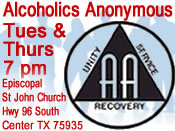July 24, 2024 - Good Morning! It's Wednesday, July 24.
On this day in 1725, a boy was born in England. His father was a ship's captain. His mother died when he was six. And at the young age of 11, his father took him to sea. He, too, became captain of a ship, a slave ship. Later he would share the testimony of a storm that arose one night on the sea, a night when John Newton experienced a life-changing spiritual conversion.
Newton soon left the sea and became a pastor. He would often write poems to accompany his sermons, and on New Year's Day 1773, he read a composition he called "Faith's Review and Expectation". Catchy title, right? Interest in the poem soon waned, and Newton became known, not as a writer, but as a leader in the abolitionist movement. He died in 1807, just weeks before Britain outlawed the slave trade.
Around this same time, a spiritual movement called the Second Great Awakening began in the young country called The United States of America. And John Newton's poem, joined now with an old folk song melody, gave voice to this revival. In 1835, the song was published in a shaped-note hymnal called Southern Harmony. The editor used the first two words as the title, and Amazing Grace was reborn. It is now the most recognized song in the English language. The lyrics, an autobiography of the amazing life of John Newton, continue to inspire us today. Here's a verse that most hymnals leave out.
The Lord has promised good to me
His Word, my heart secures
He will my shield and portion be
As long as life endures
Meet you back here tomorrow,
Bro. David
dmathis@fbccenter.org









